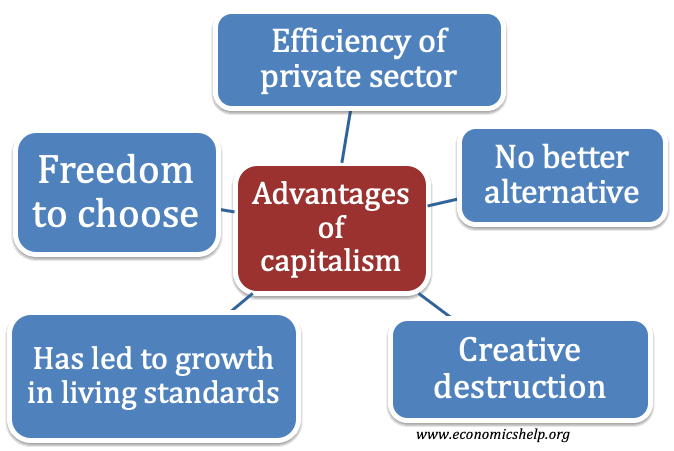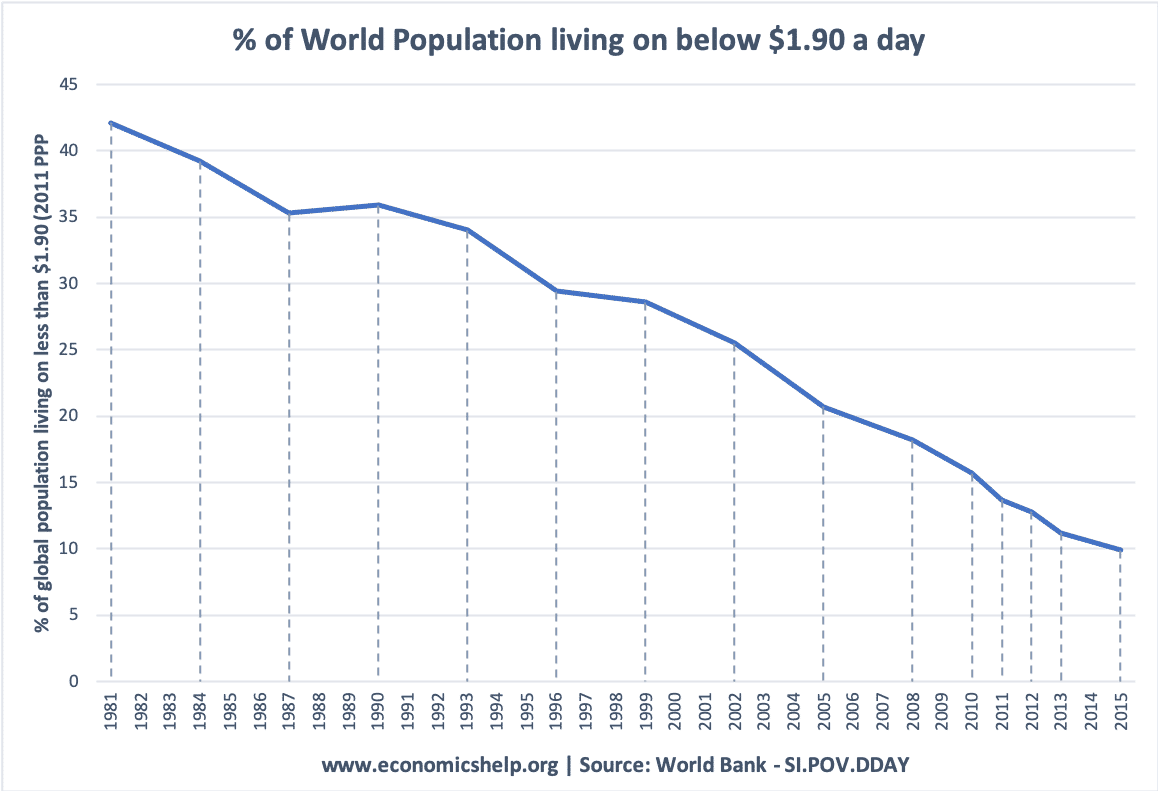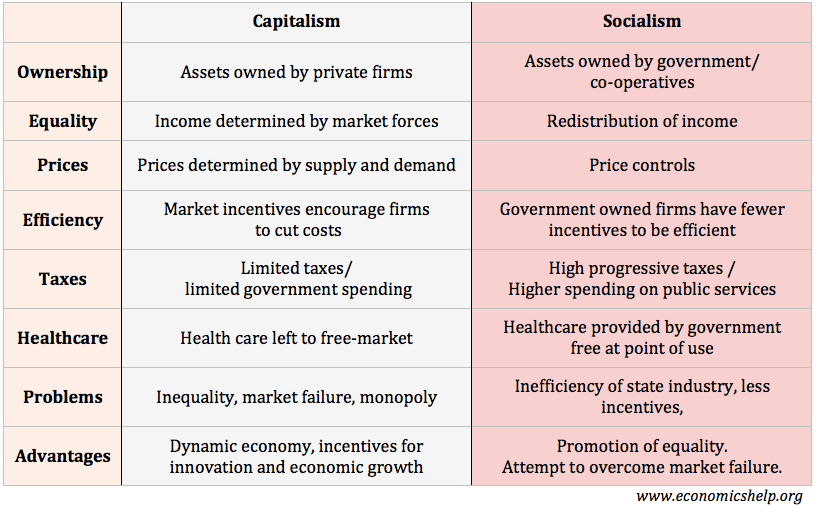Readers Question: What are the advantages of capitalism?
Capitalism is an economy based on free markets where resources and firms are privately owned. In practice, this usually involves some state intervention to protect private property and regulate certain aspects of the economy. Most would argue that the UK and US is essentially capitalist despite the government spending between 35 and 40% of GDP.

Advantages of Capitalism
1. What is the alternative?
Churchill’s quote on democracy springs to mind.
“It has been said that democracy is the worst form of government except all the others that have been tried.”
One could say the same for capitalism. Basically, when governments attempt to control the economy. We end up with problems such as:
- Corruption
- Lack of incentives
- Poor information
2. Efficient Allocation of Resources
In theory, capitalism or the ‘invisible hand of the market’ ensures resources are distributed according to consumer preferences. Firms are not rewarded for producing goods people don’t want.
3. Efficient Production
In a market system, firms have incentives to be productively efficient – cutting costs to improve competitiveness and productivity. If firms don’t remain productive and efficient they will go out of business.
4. Dynamic Efficiency
This is efficiency over time. Firms in a capitalist system need to respond to changes in consumer preferences and respond to new consumer trends.
5. Financial Incentives
Evidence suggests that people work hardest when there is a personal financial incentive. E.g. entrepreneurs only take risks in setting up businesses because of the potential for large financial reward. If this scope for private profit is absent then new firms won’t be set up.
6. Creative destruction
J. Schumpeter argued a powerful influence in capitalism was the idea of ‘creative destruction’. If firms become inefficient and outdated, they go out of business. This leads to short-term problems – unemployment. However, it allows resources – capital and labour to shift to new, more innovative and efficient industries.
7. Economic freedom helps political freedom
To a thinker like Milton Friedman or Joseph Hayek, economic freedom of capitalism is associated with political freedom. A state that limits the rights of individuals to set up a business or choose where to work will invariably face greater political interference.
“History suggests that capitalism is a necessary condition for political freedom. Clearly it is not a sufficient condition.” Milton Friedman
However, after witnessing political repression in places like Chile, Friedman admitted economic freedom was not sufficient to guarantee political freedom, but it was a starting point.
8. Mechanism for overcoming discrimination and bringing people together
Capitalism encourages trade between different nations and different people. This economic incentive works to break down barriers and go past narrow sectarian differences
“The great virtue of a free market system is that it does not care what color people are; it does not care what their religion is; it only cares whether they can produce something you want to buy. It is the most effective system we have discovered to enable people who hate one another to deal with one another and help one another.”
― Milton Friedman
Gary Becker made a similar point that profit motive would penalise those firms and individuals who practised racial discrimination.
9. Different types of capitalism
Capitalism has evolved to include aspects of social democracy and government intervention. Even the most ‘capitalist societies’ have a degree of government intervention – for example, state provision of infrastructure, education, healthcare and pensions. But, despite government intervention to temper the extremes of capitalist inequality, industry is still run along broadly free-market lines.
10. Rising living standards.
Capitalism has contributed to rising living standards and fall in absolute poverty. Since China and other countries of south-east Asia became more ‘capitalist and free market, their economies have grown leading to a rise in living standards and a fall in levels of poverty.

Capitalism vs Socialism
See also:


excellent website……thanx alot 4 the wonderful information….
thank u so much for a lot of information u help thank u!
it has helped us enrich our knowledge on the socialism Vs capitalism war of ideologies which occured and stopped when we were young
It’s very helpful and beneficial website. I personally believe too that capitalism is the best possible of world economics.
your contribution is worth in the world of academics. thank you
very interesting,woman is not only oppressed by man but also by capital
It got what you want. thanks alot.
wow, this site does help , m greatful 🙂